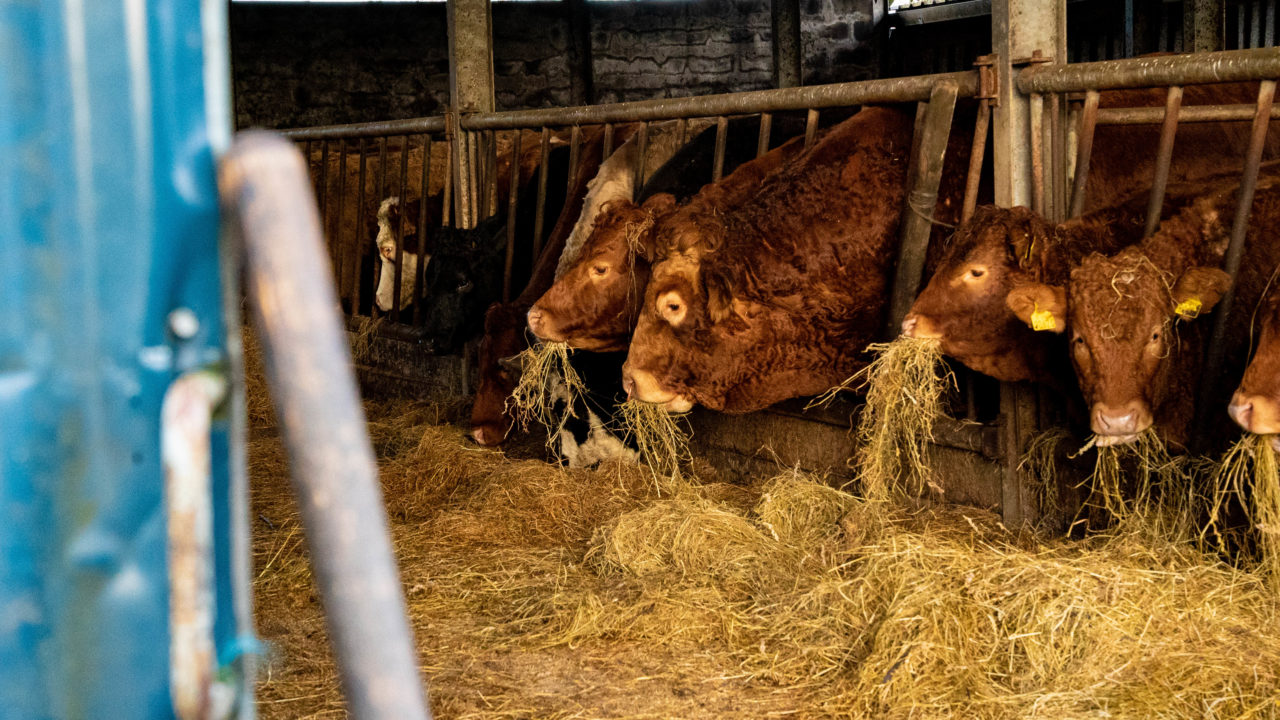The draft interim report of Food Vision Beef and Sheep Group includes a ‘voluntary extensification scheme’ to reduce beef cow numbers over time.
The report says that the potential should be examined for farmers to voluntarily extensify their livestock activity by reducing the numbers of breeding ruminants on their holding for a minimum number of years.
An incentivised voluntary extensification scheme – if this forms part of the finalised recommendations – would operate over a contract period.
It would be open to farmers to partially reduce their breeding ruminant numbers in return for an appropriate incentive.
The farmer would commit to a specific reduction number “via culling” at the commencement of the contract, the report says.
The Food Vision Beef and Sheep Group will meet on October 21, to “sign off” on the interim report, according to a schedule document.
Other key principles of such a scheme, as outlined in the draft report, are as follows:
- Farmers would partially destock breeding ruminants for a contract period;
- The scheme would provide an annual payment each year per breeding ruminants in line with stated and verified;
- The commitment would need to be linked to a herd and holding, so a farmer could not opt for the scheme and remove all their breeding ruminants and then transfer the holding to someone who would then start a breeding ruminant enterprise;
- The farmer would be able to diversify into other areas of farming activity not involving breeding ruminants (conditions on land leasing will have to be considered);
- “Extensive consultation” will be required with stakeholders.
The report notes stakeholder comments in relation to this recommendation, which say that the proposed reduction of breeding ruminants would exacerbate land abandonment concerns, particularly on marginal land, which could in turn have a knock-on effect on the economic and social sustainability of the relevant areas.
Beef ‘diversification scheme’
The report also includes a similar ‘voluntary diversification scheme’.
This scheme will provide a buy-out for animals and their progeny.
The draft interim report says that such a scheme would only have an impact on agricultural emissions if structured in a way which ensures that reductions in breeding ruminants on a participating farm are not offset by increases in breeding ruminant numbers on that farm or other farms.
The document calls for the potential for farmers to voluntarily diversify their farming activity to be examined, so that farming activity for those participating would be turned away from breeding ruminants for a minimum number of years.
The scheme, if it finds its way into the finalised recommendations, would operate over a contract period. Farmers would cease to breed ruminants in return for an appropriate incentive.
The key principles of this scheme would be as follows:
- A voluntary scheme to allow farmers to completely destock for a contract period;
- The scheme would provide an annual payment each year per breeding ruminants in line with stated and verified reductions;
- The participating farmers could not calve any breeding ruminants and register births;
- The commitment would have to be linked to the herd and the holding, therefore a farmer could not opt for the scheme and remove all their breeding ruminants, and then transfer the holding to someone else to start a breeding ruminant enterprise;
- The farmer would be able to diversify into other areas not involved in breeding ruminants (conditions on land leasing would have to be considered);
- The need for “extensive consultation” with stakeholders to ensure that the scheme is well understood.
One of the main challenges to the scheme would be its impact on intergenerational renewal and land use, the report says.
The comments from stakeholders for this scheme are in line with the comments for the extensification scheme.
